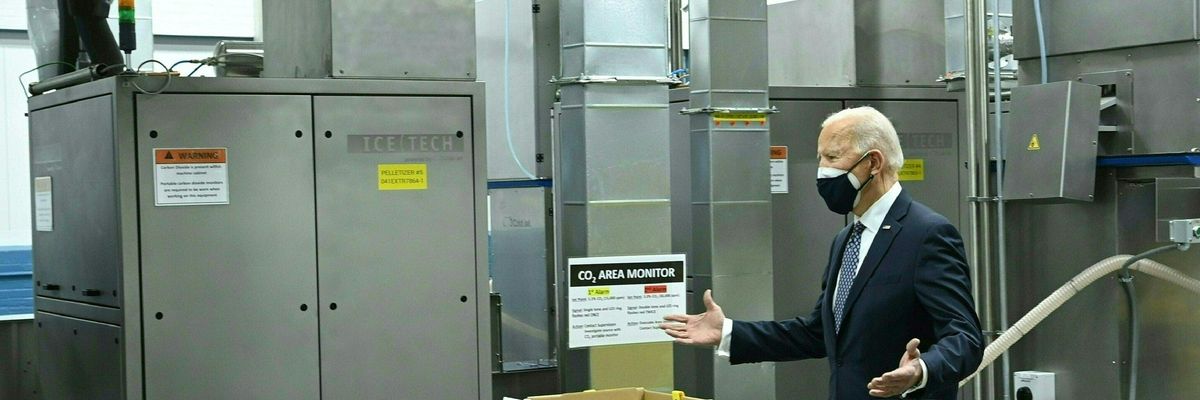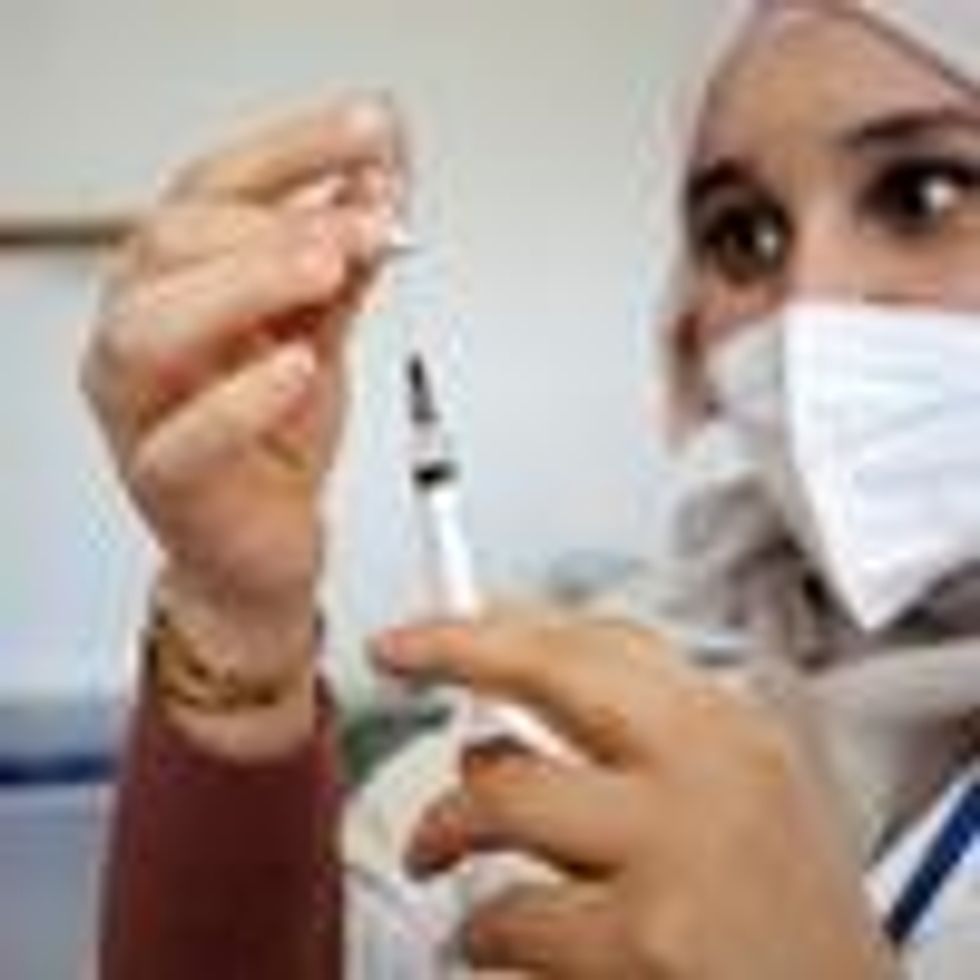An analysis published Tuesday warns that the Biden administration is likely to miss its modest goal of donating more than 1 billion coronavirus vaccine doses to the world by the end of September, a concern the White House seemed to tacitly acknowledge last week by omitting the timeline from its new Covid-19 preparedness plan.
Authored by Zain Rizvi of Public Citizen and Jo Walker, a PhD student in Yale's Department of Epidemiology of Microbial Diseases, the new report finds that the Biden administration is set to fall short of its vaccine donation commitment "absent a surge of funding and political support for global vaccinations."
"By the end of February, the U.S. had shipped 474 million doses, donating doses at a rate of 60 million in recent months," the report notes. "To meet the 1.1 billion dose target, the U.S. would have to donate 626 million doses in seven months, or about 90 million doses per month. That would require increasing the donation rate by 50%."
The assessment comes as Covid-19 remains a serious threat worldwide, killing more than 7,000 people each day and wreaking havoc on health systems across the globe.
Experts have been warning since the start of the vaccine rollout that failure to achieve sufficient global inoculation against the coronavirus virtually guarantees that additional mutations will emerge and spread, prolonging the deadly pandemic and its far-reaching societal consequences.
According to the World Health Organization, nearly 90 countries are not on track to fully vaccinate 70% of their populations by the start of July 2022. The latest figures from Our World in Data indicate that just 13.6% of people in low-income countries have received at least one coronavirus vaccine dose as rich nations continue to hoard doses and key technology.
In an interview with the New York Times, Rizvi said it is "shocking" that the Biden administration is struggling to meet donation commitments that advocacy groups have criticized as inadequate. Public health campaigners have also criticized the Biden White House for focusing its attention largely on vaccine charity while neglecting technology transfer and global manufacturing.
In the new report, Rizvi and Walker note that "after a brief spike in December, donations in January and February lagged behind the required pace."
"The reason for the delay is unclear," the report states. "But it comes after a Politico story in June reported that the Biden administration had used more than a billion dollars intended to assist countries with vaccine distribution to pay for Pfizer vaccines."
Last month, Politico reported that the Biden administration is "running out of money to support the global vaccination push, and negotiations with Congress on securing new funding have stalled." Such cash shortages are an indication that "more delays may be coming," Rizvi and Walker write.
"Biden promised a war time effort against the virus," the report continues, alluding to president's vow to make the U.S. the "vaccine arsenal" of the world. "But a narrow reliance on donations, without a larger strategy on delivery and manufacturing, has undermined the global vaccination effort. The Biden administration can move forward by rapidly requesting additional funding from Congress to make ambitious investments in delivery and manufacturing. One million lives may be at stake."
Related Content
For Fraction of Pentagon Budget, World Could Prevent 1.5 Million Covid Deaths
Jake Johnson
Rizvi and Walker's analysis was released days after the Kaiser Family Foundation (KFF) found that "while the U.S. has contributed far more [coronavirus vaccine doses] than any other donor, its rank falls considerably when standardized by GDP."
"The U.S. falls to 6th when ranked by pledged doses per $1 million GDP and is more in line, but still lower than, other large economies such as Germany and France," KFF notes. "By this measure, Bhutan ranks first, followed by the Maldives, Germany, France, New Zealand, and then the U.S."


